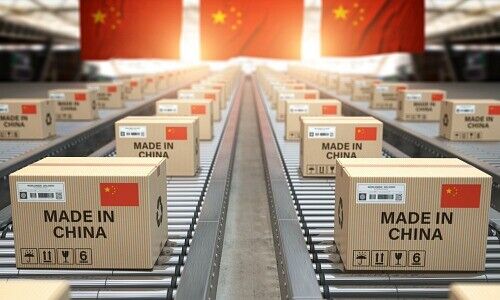Since the mid-2000s, western entrepreneurs and bankers returning from China would wax reverently to anyone within earshot, usually more than once, about the ability of the country and its government to plan for the long-term. That makes many of the recent steps the country has made related to international trade surprising.
China has taken several measures this year to hamper the trade of Australian barley, coal, timber, cotton and beef, including duties of 107.1- 212.1 percent on wine imports effective just this past Saturday, according to the South China Morning Post. Then, on Monday, the Australian government announced it expected to bring a formal case to the World Trade Organization (WTO) over the barley duties.
What should help shake many of those same business people out of their former rapture is that both countries have a free trade agreement called ChAfta and they are also members of the Regional Comprehensive Economic Partnership (RCEP), a free trade agreement signed only three weeks ago after years of negotiations.
China's Influence
Although RCEP will take up to 20 years to eliminate import tariffs, it still seemed to scare Manfred Weber, leader of the EU Parliament’s largest party, into telling the «South China Morning Post» it was a «wake-up call» for EU and the U.S. to jointly take steps against China.
Many other commentators also voiced similar thoughts, saying it would extend China’s influence in the region, although it should be noted that beyond Australia, Japan and South Korea, two of the region’s strongest democracies, are also members. And no trade agreement can survive a lack of trust among its members, particularly before any tariff cuts really kick in.
Forgettable Piece of Paper
It will simply become a very forgettable piece of paper. This is also pertinent for ChAfta, which is up for a five-year review this month and, which, surprisingly, no-one expects will be put on ice despite everything that is happening between the two countries.
If that was not enough, about ten days ago, China’s President, Xi Jinping, said the country was open to joining the somewhat clumsily dubbed Comprehensive and Progressive Partnership Agreement (CPTPP), the successor to the Trans-Pacific Partnership (TPP) initially brokered by the U.S. before President Donald Trump pulled out in 2017.
Pre-Emptive Move?
Although anyone with even a vague memory of the interminable rounds of GATT negotiations that eventually resulted in the WTO knows that no condition or tariff ever survives unscathed, the intent of the CPTPP was for a deeper trade agreement potentially requiring China to make concessions related to its sovereign-owned entities. Many commentators voiced after hearing this that the intent to join CPTPP was a just a pre-emptive move to prevent the U.S. from re-joining later under the incoming Joe Biden administration.
So, on one side we have China scampering to join all these regional free trade agreements while unilaterally levying ad hoc tariffs at individual countries in the same breath. Then, on the other, we have China and the EU not being likely to conclude an investment treaty that has gone through 33 eye-watering rounds of negotiation ahead of the deadline set for the end of this year. This, even after Germany’s Angela Merkel warned China in October that it needed to do more to open up or risk restrictions on EU market access starting as early as next year.
All this, taken together, does not look like a considered long-term approach. Although you could also say that maybe, in the very, very long term, China believes that it does not really need any of these free trade or investment agreements.
Donald Trumps' Playbook
In the short term, it does seem that all these steps are an effort to mimic Trump’s playbook. As an example, there seems to be a concerted agenda to make the relationship with Australia as bad as it could possibly be. Only a month after a report found that Australian troops unlawfully killed Afghans, the Chinese foreign ministry on Monday tweeted a depiction of an Afghan civilian being killed by an Australian soldier, refusing to take it down even after Prime Minister Scott Morrison requested it himself and demanding that China apologize.
This was on the same day that Trump, as possibly the most active lame-duck president in history, was apparently also getting ready to dip back into that same now well-worn playbook, with news wire «Reuters» reporting the prospect of U.S. sanctions against China’s state-controlled oil company CNOOC, causing the latter’s share price to fall significantly in Hong Kong trading.
Helpless and Ineffectual
Ironically, it seems that many of those multilateral, international institutions created after the end of the Second World War, many at the behest of the U.S., to prevent all these kinds of things from happening, seem silent, helpless and ineffectual.
And if current trends continue, the last thing anyone is going to be worrying about in a few years will be free trade agreements, whether they are in Asia, or elsewhere.



























